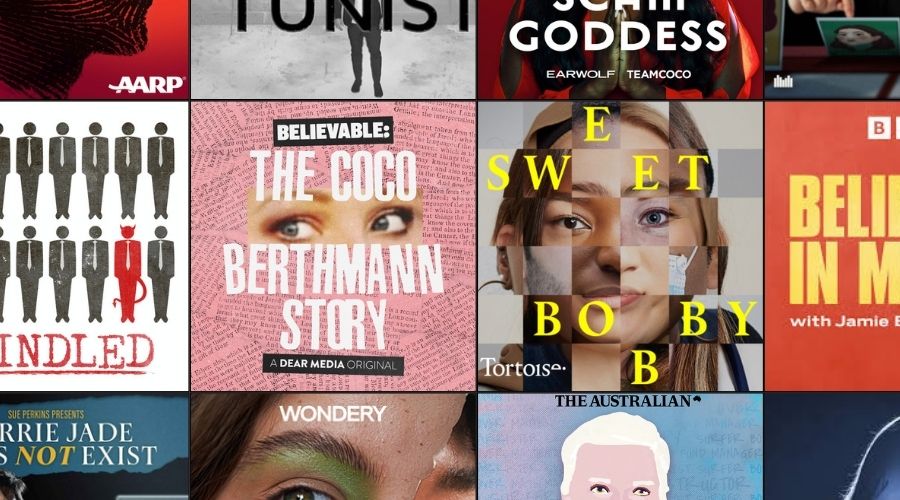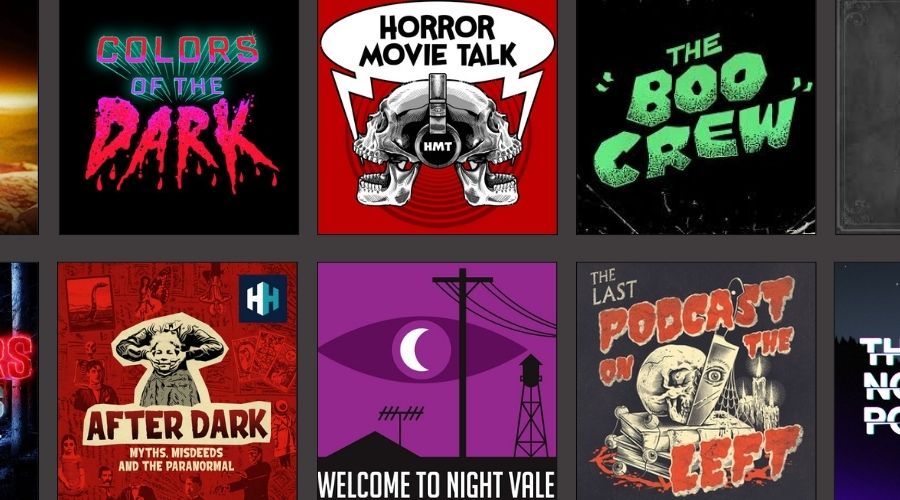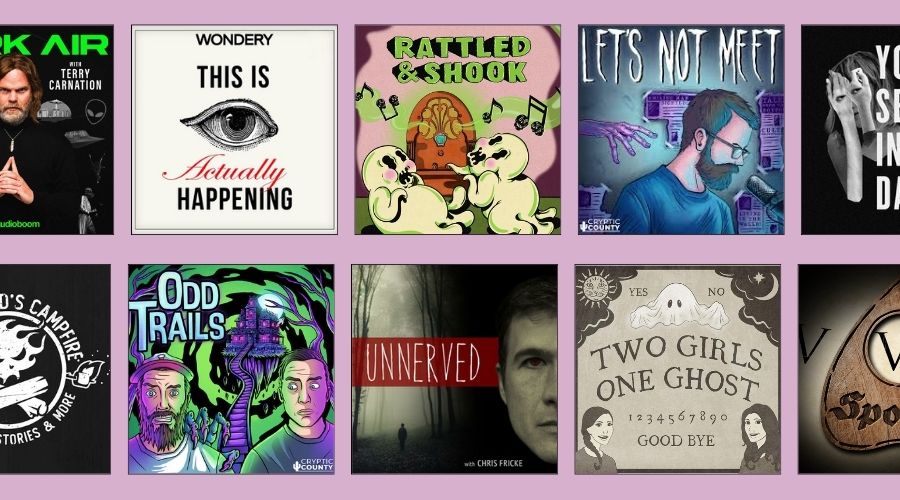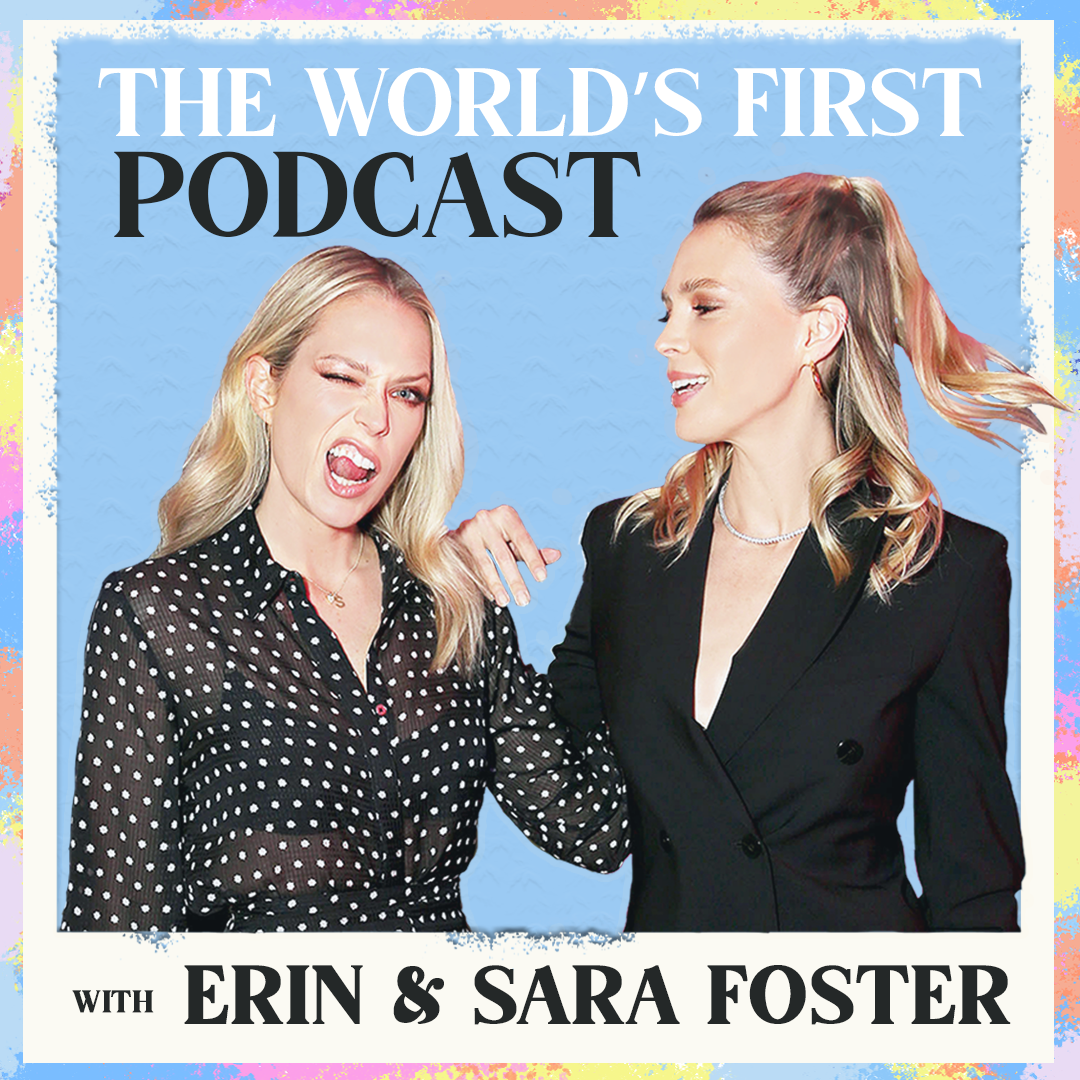How To Write A Good Podcast Script
If you’ve been following Dear Media for a while, then you know we are THE place to get all of your podcast info. And we don’t just mean recs for podcast to help you de-stress or what the best “What we Said” episodes are. No, we talk about how to help you get the ball rolling for YOUR podcast. We’ve talked about elements of a good podcast, how to plan podcast content, and how to title podcast episodes. Buuut, there’s one thing in particular we haven’t covered yet: How to write a good podcast script! What makes a podcast great isn’t just what happens behind the mic. Instead, the planning that happens before recording even begins is what truly matters.
One things for certain: Great podcasts start with great scripts. Scripts can help ensure consistency, structure, and direction in each episode. They better prepare you for each recording session and help you stay focused on the topics you wish to share with your listeners. Plus, writing a good script is one of the best ways to reduce rambling, pauses, and awkward silences that have to be edited later.
A common misconception about podcast scripts is that they must be a word-for-word transcript of your show. This is totally not the case! There are many types of scripts you can make, including your own version that works best for you. So if you’re new to the game and wanna know all the ways to write a podcast script, stick around. We’re here to show you the lay of the land.
How To Write A Good Podcast Script
Whether you’re just starting out or you wanna elevate an existing podcasts creating a good script is basically the foundation. You could have your podcast topic planned out and the most creative podcast intro to ever exist, but if it doesn’t flow correctly? It’s game over. That said, let’s talk about how to write a good podcast script and why it’s so important to do so.
Start out with a strong hook.
In order to get readers interested from the jump, you have to keep ’em hooked. Open up with a question, a bold statement, or a compelling fact. Why is this important to script writing, you may ask? You can plan each hook in advance so you’re not scrambling last minute to think of something.
When you’re not planning out a hook for each episode, it’s easy to lean back on what you’re comfortable with. But honestly? Things can feel boring and unoriginal if you’re repeating the same hook. And never, no matter what you’re talking about in your episode, don’t start out with a sponsor ad. Instant click-offs every time.
Recovering from Reality is a great example of a podcast that nails a hook every time. Check out her latest episode here to see what we mean!
Decide on the type of script you prefer.
There are a couple different types of podcast scripts to choose from. These include a talking points script, a bullet point script, a full word-for-word script, or a variation of the three.
Most podcasters find the talking points script to be almost too vague, while at the same time, they find the word-for-word to be too scripted. Bullet points tend to work best. But really, it’s all up to the individual podcaster and works best for them and their podcast format! Wanna know the key on how to write a good podcast script? Try a few different styles and see what works best for you.
We talk a little more about this in our post: Best Podcast Tips For Beginners.
Keep your segments tight.
In reality, people have short attention spans. If you’re going on and on about the same segment for too long, people will slowly become uninterested. And then, before you (or they) know it, they’ve tune out and can’t remember a single thing you said.
Of course, this isn’t true for every topic. Sometimes, it makes sense to go on for longer about certain things. But all in all, you want to make sure that you’re keeping things concise and to-the-point.
Looking for new segment ideas? Don’t worry, we have a whole post for that HERE.
Plan your transitions wisely.
This tip is huge, and it honestly isn’t talked about enough when talking about how to write a good podcast script. When you are transitioning from segment to segment, you want to create a seamless flow. Things can feel awkward or get confusing if you immediately jump from one thought to the next.
When you can, add in transitions like, “And that brings us to our next point…” or, “But here’s where things get interesting…” Not only does it help things flow better, it always ensures that readers are fully engaged.
Maintain a conversational tone.
When recording, it’s important to maintain a conversational tone. The best way to achieve this? Start by maintaining that conversational tone in your script. Write your topics, bullet points, or word-for-word script just as you would say it in a recording. Basically, think of a script as if you were speaking to a friend!
It keeps things comfortable, natural, and it really helps the overall flow. Even if you do catch yourself kind of just reading off a piece of paper, at least you know it’s already warm and conversational! Your listeners wanna feel like you’re catching up over a cup of coffee, not like you’re being forced on a blind date.
Use bullet points.
Even if you’re not using a bullet point script, bullet points are a great way to organize your talking points. Outline, outline, outline. As you list your topics in bullet point form, remember to put them in the order in which you would like to speak about them.
Then, don’t be afraid to go back and add even more supporting points or information under each bullet point! Get creative! Hit the high point and then dive deeper into to. This opens up the floor for conversations, feedback, and comments from listeners. The more information you add now, the easier it will be to record later.
Include your unique intro and outro.
When making your script, remember to add in your intro and outro. Go ahead and plan out how you will welcome the audience to your show and how you’ll wrap things up at the end. You might also want to include time for your guest introductions, your sponsor message, or to talk about upcoming episodes.
Kind of like we said earlier about beginning with a strong hook. You want listeners first and last impression of you each episode to be memorable. Making a full, comprehensive script will make your episode seem much more seamless and professional, inevitably increasing your podcast’s overall quality.
For more on the best podcast intros, check out this post! And, if you’re looking for the best way to end a podcast, click HERE.
Use delivery notes to help with flow.
Podcasting is all about the delivery of information. To help you deliver information to your audience in the best way possible, add notes along your script. Most importantly, add them where you want to show emphasis, elaborate on a specific point, show an image or video, to play a musical jingle or sound effect, and so on. These delivery notes will serve as little reminders throughout your recording and help your episode maintain a good flow.
But, again, it should feel natural! You don’t want to be reading off of a script, see “add emphasis here,” and make it sound forced. If you have to, practice a few times beforehand!
Leave room for flexibility.
Ad-libbing, humor, stories, and interesting conversations with guests can happen at any time during recording. And sometimes, those are the parts that listeners enjoy the most. So, leave room for flexibility. It’s not necessary to script every single second of your podcast episode. If you’re hosting a guest, a great way to promote flexibility is to have a list of questions nearby. Then, if there’s a pause, you’re already prepared with the next topic.
It’s especially important to note that with an interview podcast, it’s hard to truly plan out content. So, just do your best! Write down a few questions to ask, things you want to bring up, or moments you want to reflect on. This is key info to know when thinking about how to write a good podcast script.
Be descriptive to set the scene.
Don’t be afraid to set the scene and really spell it out for your listeners—this helps your podcast get more downloads! The better you can set the scene, the more involved your listeners will feel. Practice using descriptive language, especially in your script, to make sure your listeners feel like they are right there with you.
Think about the last time you listened to a podcast and either felt confused or uninterested. Chances are, it’s probably because the podcaster was lost themselves. If you’re not creating an environment where your listeners feel like they’re truly part of the story, they may reconsider tuning in next time.
Be your natural self.
When it comes to writing a script, the more authentic you are now, the more your true personality will shine through in your recording. Always remember to try to sound like yourself—that’s what listeners love the most.
After all, what else are they tuning into episodes for?!? You could have the most interesting content or catchy hook, but if you’re not delivering it authentically, it doesn’t matter. Remember that you are the star of the show, and that’s what people love the most. Check out this episode of With Whit for more on being your most authentic self.
Include your call-to-action(s).
A call-to-action is one of the best ways to maintain your listener’s attention and increase audience engagement. And making sure to add them to your script is the best way to remember to say them while recording. These will usually be used in your intro or outro, but can also be sprinkled throughout your podcast episode as well. Not sure what call-to-action to use? Consider calling upon your listeners to use your affiliate links, to purchase your merch, follow you on social media, or to subscribe to your podcast website or newsletter.
a call-to-action is basically that little “Hey! You can find me here, here, and here” reminder. This allows listeners to keep up with your life outside of the podcast, which then furthers their investment and personal relationship to YOU. It’s all about authenticity and connection, baby!
Don’t overcrowd your script.
When you’re writing a script, it’s easy to feel like you have to pack it full of content. We’re here to reassure you, you don’t have to fill every single second with content or punchy lines or random sound cues. If anything, this can make things feel too planned and staged. Leave from for breathing, and let the breaks create a natural rhythm.
Learn from your past episodes.
One of the best ways to improve your future podcast scripts is to learn and reflect on your previous podcast episodes and episode topics. Which episodes performed better? How can you improve your flow? Are there things you can write down to make sure there are less pauses in the future? Which topics interested your listeners the most?
Ask yourself these questions and then use the answers to better formulate your scripts. There’s always an opportunity to grow and better yourself. Use your previous content to your advantage to continue elevating your style!
A great podcast starts with a great script.
Writing a good podcast script can be the difference between making a good episode and a great episode. Great episodes are what make your podcast stand out in the sea of podcasts being released each and every day.
There are many ways you can structure a podcast script. But, to help you get started, we’ve created a general guide you can follow until you perfect your process. For more on the ins and outs of podcasting, head on over to the Dear Media Blog. And, if you have any additional questions or comments, feel free to drop them below!
Podcast Script Template
Intro:
Your intro might include music intro, your sponsor message, unique sound effects, and so on.
Episode introduction:
Your episode introduction is a great time to introduce yourself to new listeners, introduce your guests, and introduce the topics you’ll be discussing in your episode.
Topics:
Here, you will list your topics in bullet point form. Under each bullet, you can list supporting information like statistics, data, a story, or a quote.
Recap and closing remarks:
In this section, quickly paraphrase your main points and the key takeaways of your episode.
Outro:
Like your intro, your outro may contain music, your sponsor message, and unique sound effects. It might also include a call-to-action, answering listener questions, or any other unique way of closing out your episode and leaving those listeners wanting more.



















Leave a Reply